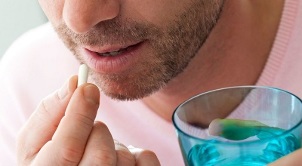
Antibiotics for prostatitis are prescribed immediately if the patient consults a urologist in the acute stage of inflammation. That is, the doctor will not wait for the test data. Therefore, in the early days, a drug with a broad spectrum of action is selected, the scheme of choice when choosing an antibiotic for cystitis is very similar.
It usually takes two to three days after the laboratory information is received by the doctor, who decides to either continue the selected therapy regimen or prescribe a new, more effective drug.
When choosing a drug, the doctor should take into account the patient's age, history of certain somatic diseases and allergic reactions.
The patient, in turn, should inform the doctor about the antibiotics he has previously used.
If a man is treated with some kind of medication a few weeks before prostatitis, it is unlikely to be effective enough to eliminate the inflammation at this stage.
Among the various groups of antibiotics, there are so-called "reserve" drugs, which include drugs that have a strong effect on the body. The urologist prescribes them only if the previous conservative treatment did not help.
Antibiotic treatment requires certain conditions.
- Antibiotics are prescribed for a certain period of time. Generally at least 2 weeks. In the future, the doctor will assess the condition of the prostate gland and recommend discontinuing the drug or continuing treatment;
- The dose of the drug is also selected separately;
- The whole course of treatment must be completed. If cut off, the body creates the right conditions for an acute infectious process to progress to a chronic process;
- It should not be more than three days from the time you start using antibiotics until the pain and discomfort subside. If the condition does not improve after this time, you will need to see a doctor again to review therapy and choose another antibiotic.
Antibiotic therapy is one of the most important conditions for complete recovery from bacterial prostatitis. A sick person must understand that his future problem-free life depends on adherence to the entire treatment regimen.
Antibiotics for prostatitis are selected from the following groups of drugs:
- Penicillins. The effects of this group on bacteria are extensive, and therefore are most often determined before laboratory data are obtained. Another advantage of these drugs is the budget price, and therefore any patient can receive treatment;
- Macrolidespenetrate perfectly into the tissues of the prostate gland and fight infection after the first intake. This group of drugs is practically non-toxic and does not affect the state of the intestinal microflora;
- cephalosparins. These are mainly applied to hospitals because they are administered intramuscularly or intravenously;
- Tetracyclines.It is effective for prostatitis caused by chlamydia. However, these drugs are very toxic and have spermatoxic effects. Therefore, they are not defined before planning the concept;
- Fluoroquinolones.It is used when there is no effect from drugs from other groups.
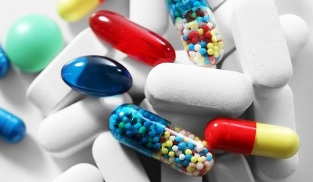
When using antibiotics for the first time, it is necessary to note all the changes in health. Often these drugs cause severe allergic reactions, especially in patients with a history of allergies.
It is not always possible to get rid of prostatitis at home, because before prescribing any antibiotic, the doctor must check the reaction to the bacteria found.
Due to the large number of side effects, treatment should be carried out under the supervision of a specialist. In case of unpleasant symptoms, you should immediately contact your doctor and change the medication.
Antibiotics for the treatment of prostatitis in pill form may contain various active ingredients. Therefore, the list of such drugs is quite extensive, and only a doctor can prescribe the right one.
Fluoroquinolones
The most effective antibiotics for prostatitis, according to urologists, belong to the group of fluoroquinolones. The benefits of fluoroquinolones in the treatment of prostatitis are:
- large distribution volume;
- creation of high concentrations of the substance in the prostate;
- to penetrate cells;
- has a postantibiotic effect - after taking the drug, a concentration that inhibits the growth of bacteria remains inside the cells for several days;
- is taken at most once a day.
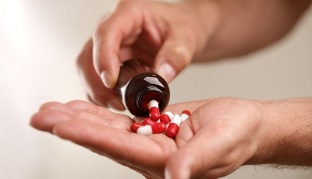
There are several generations of this type of antibacterial drug. The second, third and fourth generations are most commonly used in urological practice.
Antibiotics against prostatitis from the group of third-generation fluoroquinolones, fourth-generation mixed microflora - facultative anaerobes, gram-positive, gram-negative bacteria (Escherichia coli, staphylococci, enterococci), atypical intracellular bacteria, mycoplasma.
The active ingredients of fluoroquinolones for prostatitis include: levofloxacin, ciprofloxacin, moxifloxacin.
Antibiotics for acute prostatitis in men can be used for two weeks, not a month, if the disease begins with opportunistic flora.
As a rule, drugs in this group are well tolerated by patients. The most common side effects are nausea and diarrhea. Phototoxicity is rarely recorded.
If chronic bacterial prostatitis has started, a different treatment strategy should be used.
Symptoms are not as obvious as in an acute process. The patient rarely complains of pain, urinary problems and sexual problems.
Chronic bacterial prostatitis is dangerous: for most men, the episodic pain is almost imperceptible, but causes infertility, erection problems, prostate abnormalities, and prostate adenoma.
All of a sudden, when the obvious signs of these problems start to bother a person.
Over time, a man with more and more unpleasant feelings and episodic pains consult a urologist.
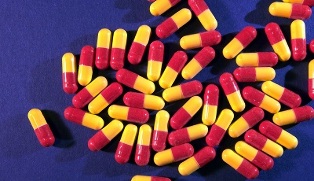
As in acute prostatitis, the doctor performs the necessary examinations (blood tests, urine tests, palpation and bacterial culture), after which he develops a treatment regimen.
On average, treatment takes 4-8 weeks. This is a serious stress for the body, because in addition to the targeted microflora, our friends also suffer. Therefore, taking antibiotics is primarily associated with the use of drugs that restore the gastrointestinal microflora.
In addition to antibiotics, the patient is prescribed physiotherapy and drugs that relieve edema and relax the smooth muscles of the prostate gland, and folk remedies that accelerate the therapeutic effect in complex therapy should not be forgotten.
Tetracyclines
Available in both applications, they are highly active against chlamydia and mycoplasma, so their effect is higher in chronic prostatitis associated with sexually transmitted diseases. Optimal drugs are those with the best pharmacokinetic data and tolerance.
However, tetracyclines have a destructive effect on gram-positive flora by being active in nosocomial infections with methicillin-resistant staphylococci. The drugs destroy chlamydia, mycoplasma, intracellular forms of ureaplasma. The advantage of tetracyclines is a lower incidence of intestinal dysbiosis and also anti-inflammatory effect. Intestines are ineffective in connection with Pseudomonas aeruginosa.
Drugs for chlamydial, mycoplasma and ureaplasma infections are taken within 3 weeks, for other pathogens two weeks of application is required.
Means from this group should not be taken with the simultaneous use of dairy products.
Macrolides in the treatment of prostatitis
Macrolides (including azaleas) should only be used under certain conditions, as there is little scientific evidence that they are effective in prostatitis, and that this group of antibiotics is less effective against gram-negative bacteria.
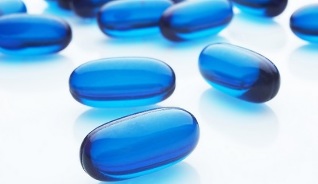
However, you should not completely abandon the use of macrolides, as they are very active against gram-positive bacteria and chlamydia.
In terms of treatment of prostatitis, antibiotics from the macrolide group have an inhibitory effect on atypical intracellular bacteria, gram-positive microorganisms (cocci).
The advantage of macrolides in the treatment of prostatitis is their low toxicity compared to fluoroquinolones. Macrolides create a high concentration of the substance in the tissues of the gland, have a postantibiotic effect, have anti-inflammatory and immunomodulatory effects. The drugs have a beneficial effect on phagocytosis, inhibiting oxidative stress in cells. Macrolides can be used in adolescents.
If prostatitis is caused by opportunistic flora, treatment may take up to two weeks. The drug can be taken in combination with fluoroquinolones.
Many patients with a history of penicillin allergy are wondering what antibiotics to take for prostatitis in men. Means from the macrolide group do not have a cross-allergy to drugs from the group of penicillins and cephalosporins, so they can be safely taken by patients with allergies.
























